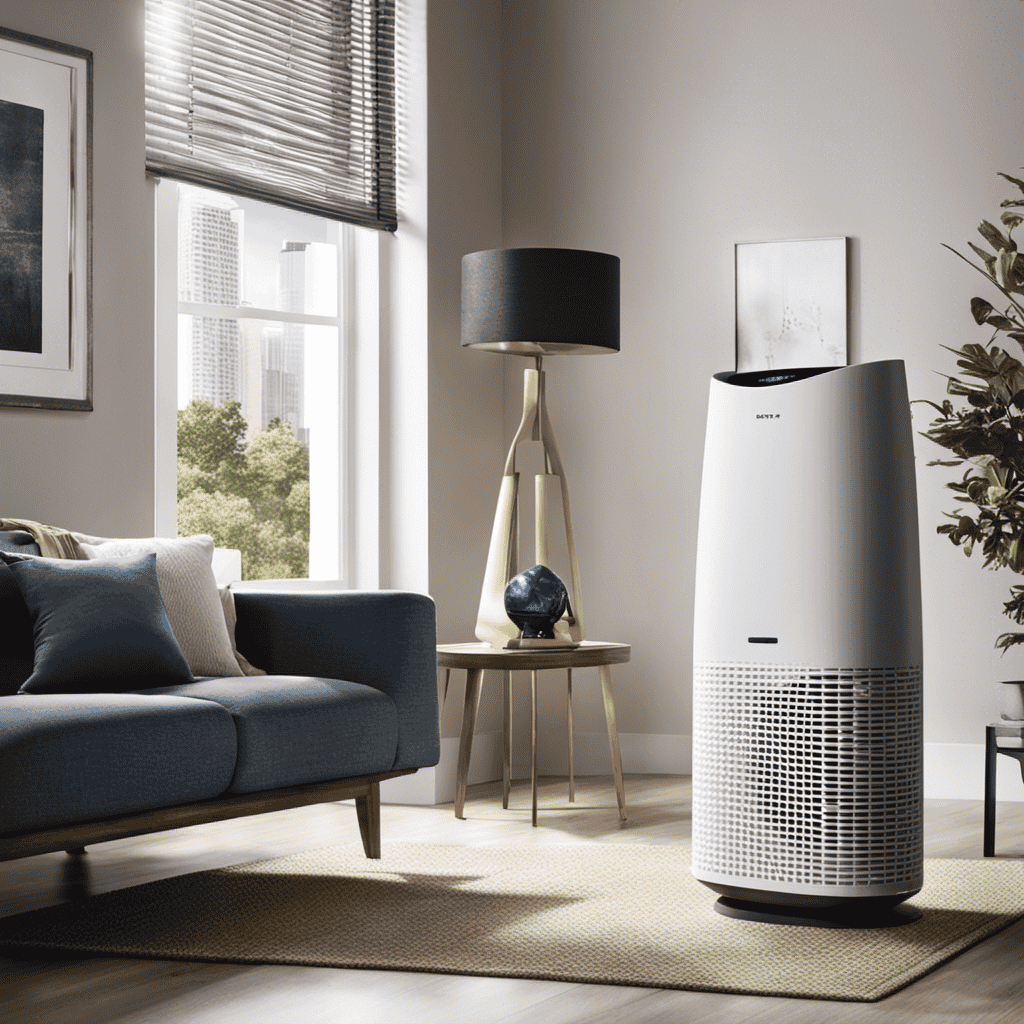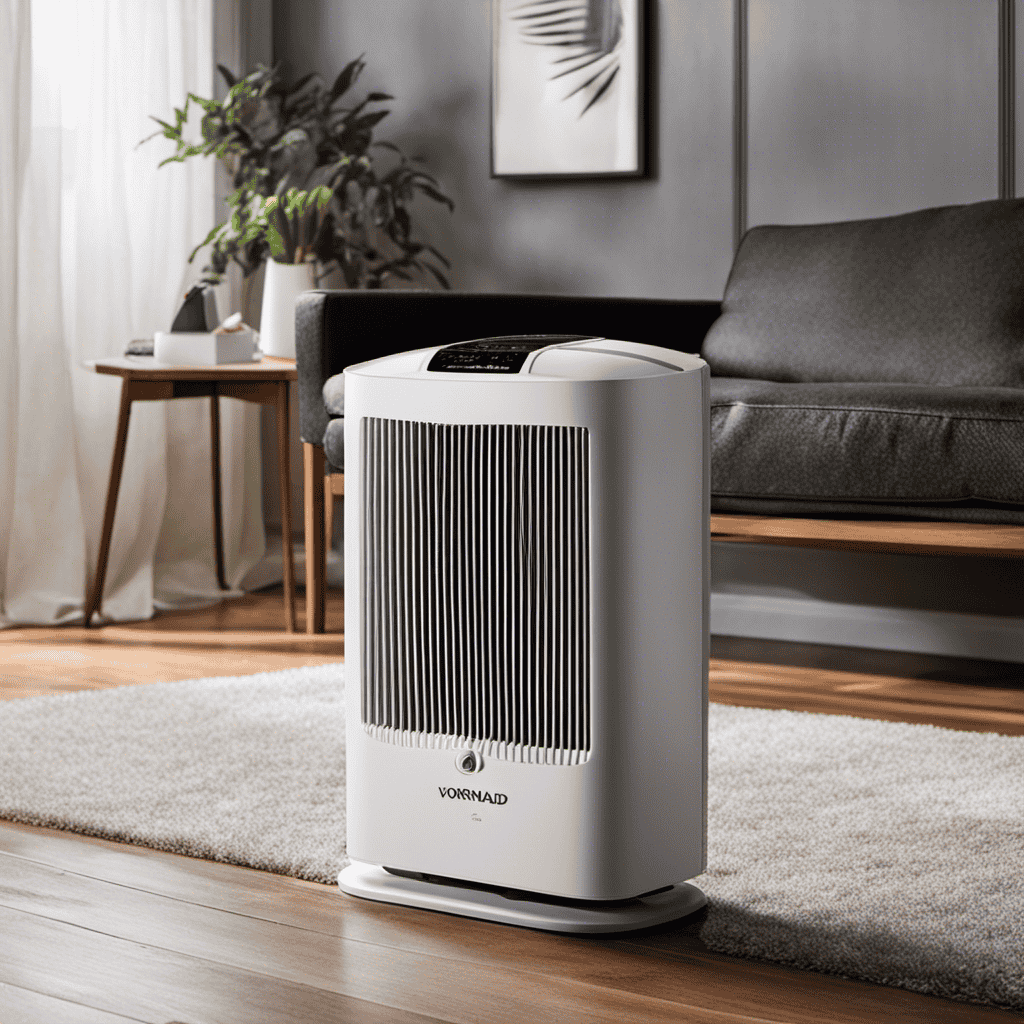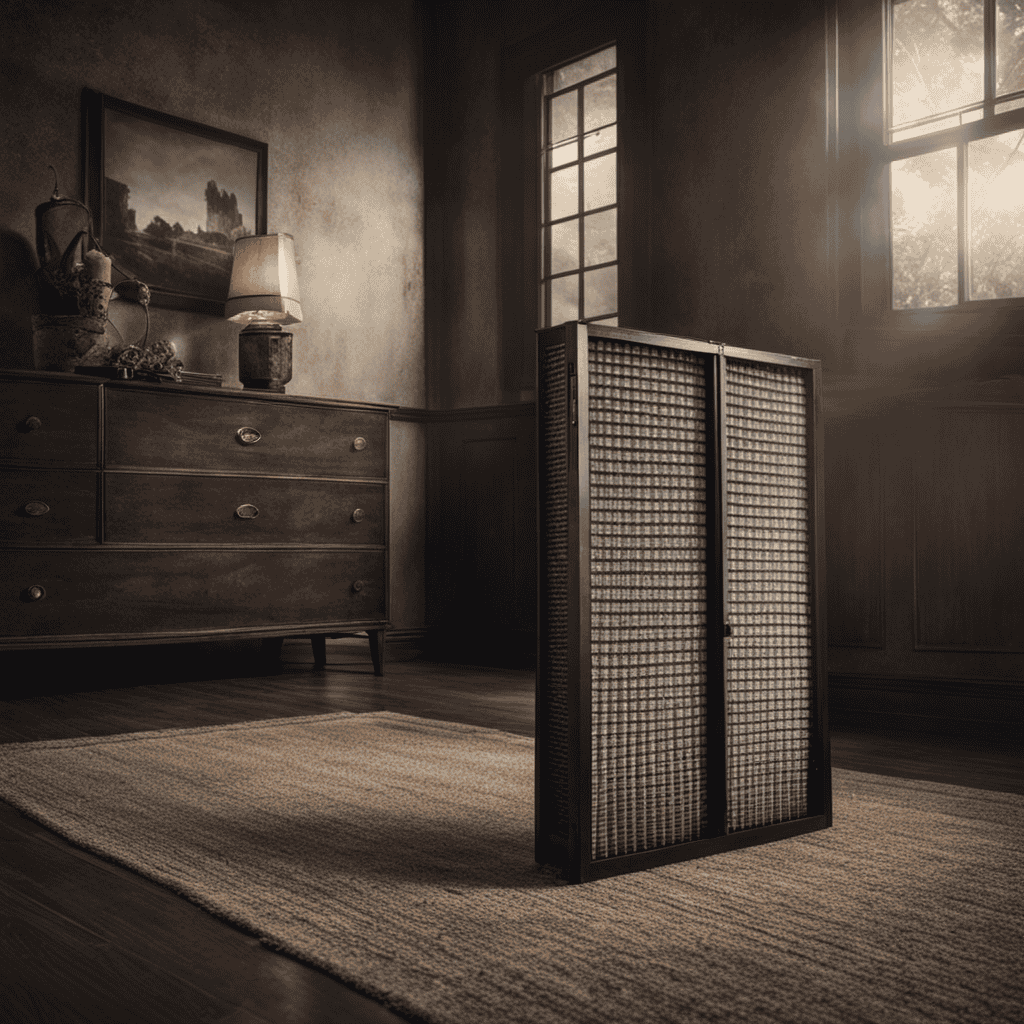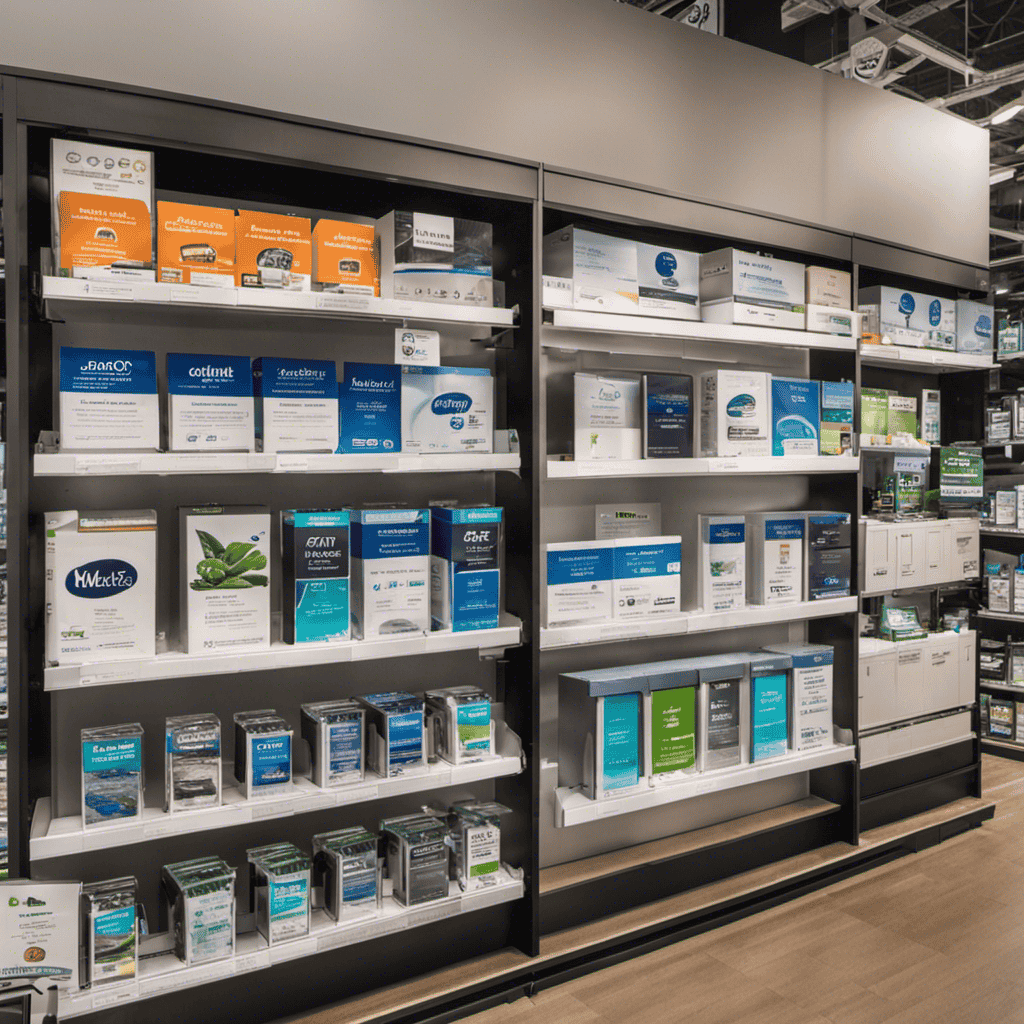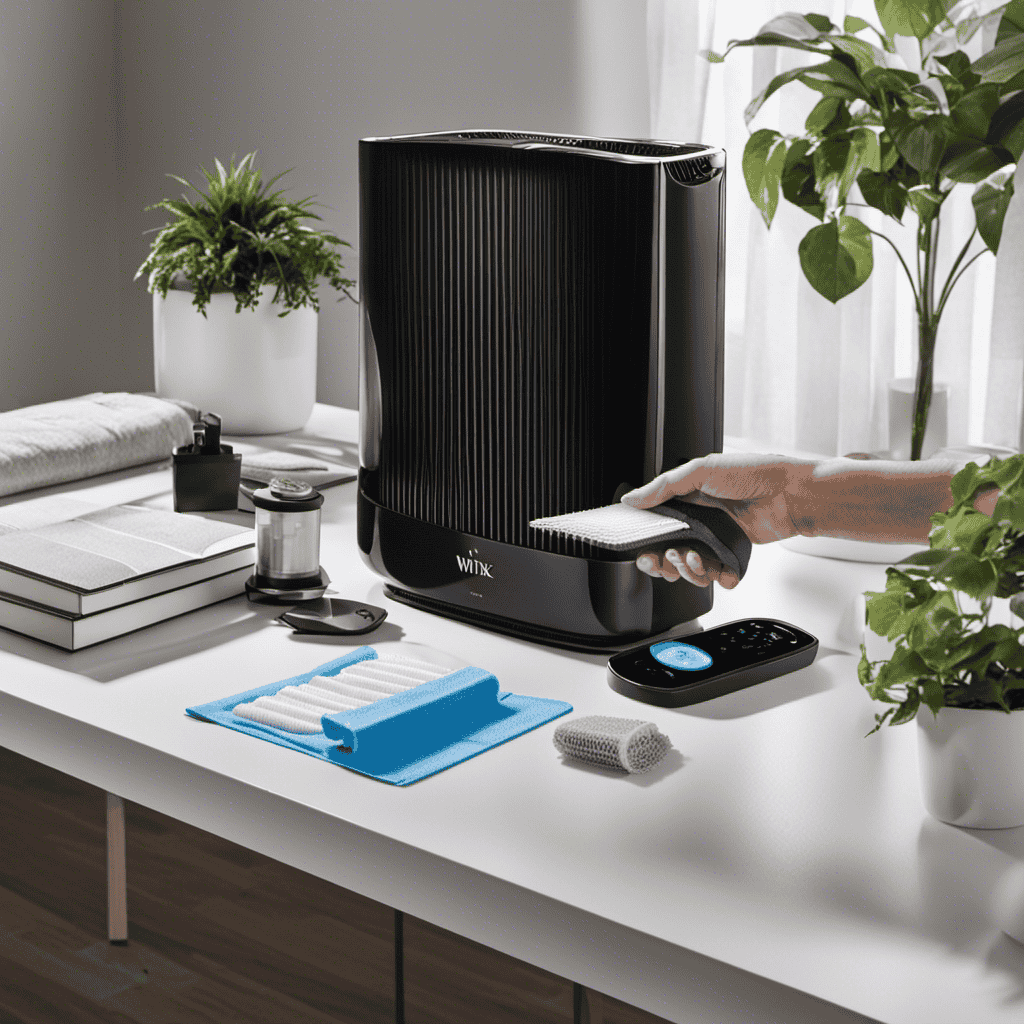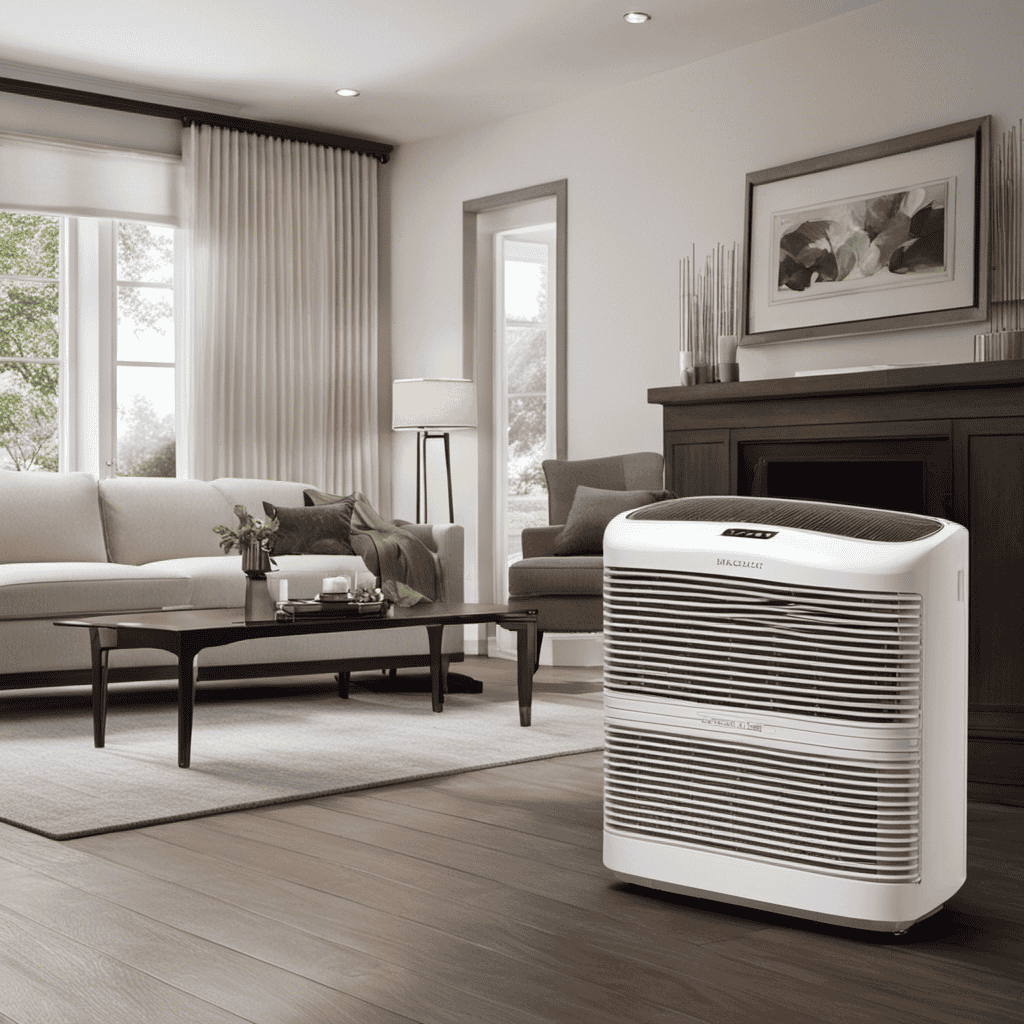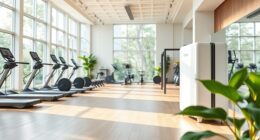As someone who is mindful of the air quality I breathe, I have frequently pondered the frequency at which I should change the HEPA air filter in my purifier. This is a common question among many individuals and one that necessitates a straightforward response.
In this article, we will explore the significance of regular air filter replacement, the factors that affect the lifespan of your air filter, and the recommended frequency for replacement.
So sit back, relax, and let’s dive into the world of purifier air filters and how often they should be changed.
Key Takeaways
- Regular air filter replacement is essential to maintain the effectiveness of a HEPA purifier.
- Factors such as air quality, pollutant levels, and particle size can impact the lifespan of an air filter.
- The recommended frequency for air filter replacement is generally every 6 to 12 months, depending on various factors.
- Signs that indicate air filter replacement is needed include foul odors, increased allergy symptoms, and decreased airflow and efficiency.
Significance of Regular Air Filter Replacement
Regular air filter replacement is important to maintain the effectiveness of a HEPA purifier. Air filter maintenance plays a crucial role in ensuring that the purifier functions optimally and provides clean air.
The air filter acts as a barrier, trapping airborne particles such as dust, pollen, pet dander, and mold spores. Over time, these particles accumulate on the filter, reducing its efficiency. By regularly replacing the air filter, you can ensure that the purifier continues to effectively remove these contaminants from the air.
This is especially important for individuals with allergies, asthma, or respiratory conditions, as clean air is essential for their well-being. Neglecting air filter maintenance can lead to decreased air quality, decreased purifier performance, and potential health risks.
Factors Affecting Air Filter Lifespan
Make sure you’re aware of the factors that can affect the lifespan of your air filter.
The efficiency of your air filter can be influenced by various factors. One important factor is the quality of the air being filtered. If the air quality is poor, with high levels of pollutants, dust, or allergens, the filter will work harder and may get clogged faster.
In addition, the size and type of particles in the air can also impact the filter’s lifespan. Fine particles, such as those from smoke or pet dander, can be more challenging to capture and may shorten the filter’s life.
Regular maintenance, such as cleaning or replacing the filter when needed, can help extend its lifespan and ensure optimal filtration efficiency. So, keep these factors in mind to ensure your air filter lasts longer and provides cleaner air for you and your family.
Recommended Frequency for Air Filter Replacement
It’s important to know how frequently you should replace your air filter to ensure optimal filtration efficiency. The recommended frequency for air filter replacement depends on several factors such as the type of filter, the level of air pollution in your area, and the usage of the air purifier.
As a general guideline, it is recommended to replace your air filter every 6 to 12 months. However, in areas with high pollution or if you use your air purifier extensively, more frequent replacement may be necessary.
Regularly replacing your air filter is crucial because it ensures that your air purifier is functioning at its best, capturing and removing harmful particles from the air. Neglecting to replace your air filter can result in reduced filtration efficiency and poorer indoor air quality.
Now let’s explore the signs that indicate air filter replacement is needed.
Signs That Indicate Air Filter Replacement Is Needed
As a homeowner, it’s important to be aware of signs that indicate air filter replacement is needed. One of these signs is foul odors coming from the vents, which can indicate a buildup of dirt and debris in the filter.
Another sign is increased allergy symptoms, as a dirty filter may not effectively capture allergens and pollutants.
Additionally, decreased airflow and efficiency can be indicators that the air filter is clogged and in need of replacement.
Foul Odors From Vents
If you’re dealing with foul odors from vents, you might want to consider cleaning or replacing your air filter with a HEPA purifier. Foul odors can be indicative of a dirty or clogged air filter, which can affect the quality of the air in your home. Here are some reasons why you should address this issue:
-
Improved air quality: A clean air filter will help remove odors and pollutants from the air, ensuring that you and your family breathe in clean and fresh air.
-
Elimination of allergens: A HEPA purifier can effectively capture and trap allergens like dust, pollen, and pet dander, reducing the risk of allergic reactions.
-
Enhanced respiratory health: By removing harmful particles from the air, a clean air filter can help alleviate symptoms of asthma and other respiratory conditions.
-
Pleasant indoor environment: By eliminating foul odors, you can create a more pleasant and inviting atmosphere in your home.
Regular vent cleaning and using an air freshener can also help maintain a fresh and odor-free environment.
Increased Allergy Symptoms
After dealing with foul odors from vents, I noticed an increase in my allergy symptoms. I realized that my allergies were being triggered by various factors in the air.
Allergy triggers such as pollen, dust mites, pet dander, and mold spores can easily circulate through the ventilation system and worsen symptoms.
To find relief, I researched the benefits of using a HEPA air purifier with a high-frequency air filter. These purifiers are designed to capture and remove allergens from the air, reducing their presence and providing relief from allergy symptoms. The HEPA filter is particularly effective as it can trap particles as small as 0.3 microns in size.
Decreased Airflow and Efficiency
Using a HEPA air purifier can significantly improve airflow and the efficiency of your ventilation system. Regular air filter maintenance is crucial for prolonging the filter lifespan and ensuring optimal performance.
Here are some important points to consider:
- Clean or replace the air filter regularly to prevent clogging and maintain proper airflow.
- Check the manufacturer’s instructions for recommended cleaning frequency and replacement intervals.
- Vacuum the exterior of the air purifier to remove any dust or debris that may accumulate over time.
- Keep the surrounding area clean to minimize the amount of airborne particles that can enter the purifier.
By following these maintenance tips, you can maximize the lifespan of your HEPA air filter and ensure that it continues to effectively remove pollutants from your indoor air.
Don’t overlook the importance of proper maintenance in optimizing the performance of your air purifier.
Proper Maintenance to Extend Air Filter Lifespan
To extend the lifespan of your air filter, make sure you regularly clean and replace it as recommended. Proper maintenance is essential to ensure the efficiency and effectiveness of your air filter.
When it comes to cleaning your air filter, there are a few techniques you should follow. First, always refer to the manufacturer’s instructions for specific cleaning methods. Generally, you can use a vacuum cleaner or wash the filter with mild soap and water. However, avoid using harsh chemicals or excessive water pressure, as this can damage the filter.
Additionally, be aware of common mistakes in air filter maintenance. One common mistake is neglecting to clean or replace the filter regularly. This can lead to reduced airflow and decreased filter efficiency. Another mistake is using the wrong type or size of filter, which can compromise its effectiveness.
Benefits of Regularly Changing Your Air Filter
Regularly changing your air filter not only improves the air quality in your home, but it also helps to maintain the efficiency of your HVAC system. Here are some key benefits and the importance of this practice:
-
Enhanced air quality: When you change your air filter regularly, you remove dust, pollen, pet dander, and other airborne particles from the air. This can greatly improve the air quality in your home, reducing allergies and respiratory issues.
-
Improved energy efficiency: A clogged air filter restricts airflow, forcing your HVAC system to work harder to maintain the desired temperature. By regularly changing the filter, you allow for proper airflow, reducing energy consumption and lowering utility bills.
-
Extended system lifespan: A clean air filter prevents dust and debris from entering your HVAC system, reducing wear and tear on the components. This helps to extend the lifespan of your system, saving you money on repairs and replacements.
-
Better overall comfort: With a clean air filter, your HVAC system can effectively distribute heated or cooled air throughout your home, ensuring consistent temperatures and optimal comfort.
Regularly changing your air filter is of utmost importance to reap these benefits and maintain a healthy and efficient HVAC system.
Frequently Asked Questions
What Is the Difference Between a HEPA Air Filter and a Regular Air Filter?
A HEPA air filter is superior to a regular air filter because it can capture smaller particles, such as allergens and pollutants, more effectively. This leads to cleaner and healthier air for breathing.
Can I Clean and Reuse a HEPA Air Filter Instead of Replacing It?
I can clean and reuse a HEPA air filter instead of replacing it, but it is not recommended. Regular cleaning can reduce its effectiveness and may not remove all contaminants. Replacing it regularly ensures optimal filtration and benefits of using HEPA filters.
How Do I Choose the Right Size of Air Filter for My HVAC System?
Choosing the right size air filter for your HVAC system is crucial. It ensures proper airflow, maximizes efficiency, and reduces allergens. HEPA filters provide excellent filtration, capturing even the smallest particles, improving indoor air quality.
Are There Any Health Benefits Associated With Using a HEPA Air Filter?
There are significant health benefits associated with using a HEPA air filter. These filters are highly effective in removing airborne particles, such as dust, pollen, and pet dander, which can improve indoor air quality and reduce respiratory issues.
Can a Dirty Air Filter Affect the Efficiency of My HVAC System and Increase Energy Consumption?
Yes, a dirty air filter can affect the efficiency of my HVAC system and increase energy consumption. Regular air filter maintenance is important to maintain indoor air quality and optimize system performance.
Conclusion
In conclusion, regularly replacing your air filter is crucial for maintaining clean and healthy indoor air. Studies have shown that indoor air can be up to 5 times more polluted than outdoor air, mainly due to airborne particles trapped in the filter.
To evoke an emotional response, it is worth noting that poor indoor air quality can lead to various respiratory issues, with 4.2 million deaths occurring each year as a result.
So, by diligently replacing your air filter, you can protect yourself and your loved ones from the harmful effects of polluted indoor air.
